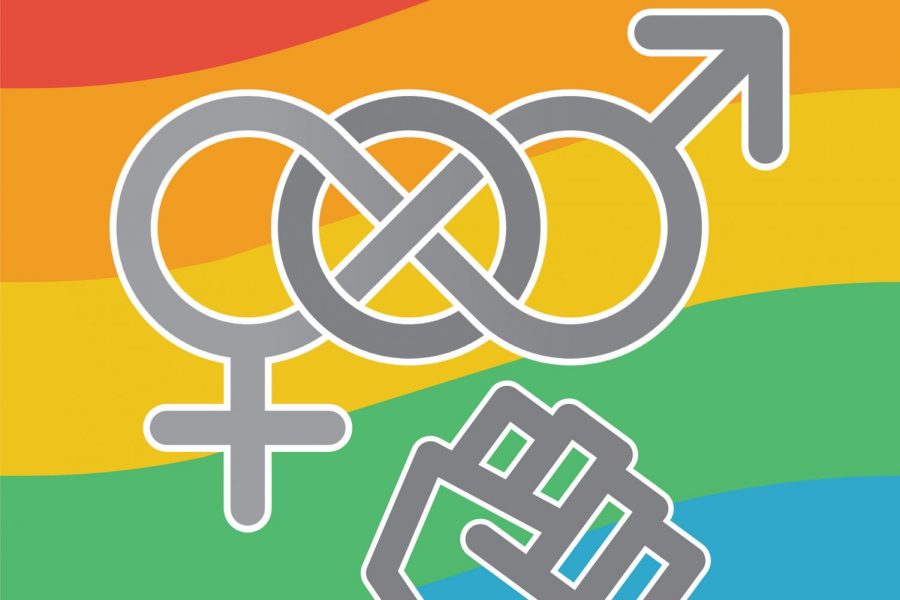What Does It Mean to Be Queer in a White Society?
The Seattle University Gender Justice Center’s (GJC) most recent dialogue confronts how queerness and whiteness are primarily viewed as two separate identities, but still dominate the history and current representation within the LGBTQ community.
White privilege was made popular by a woman named Peggy McIntosh. Her 1989 piece “White Privilege: Unpacking the Invisible Knapsack” gave way to the modern definition of white privilege commonly used today. In the piece, she ties privilege to all the unearned advantages that white people benefit from. Although she was not the first person to coin the phrase, she helped bring the term into the public and academic eye.
The purpose of this event was to encourage dialogue in a safe space where students could learn about the intersections of race and sexuality. The GJC wanted to foster a conversation around the ways queer people of color experience different forms of prejudice than their white counterparts.
Clara Juliano, a sophomore nursing major with an LGBTQ+ studies minor is an active member of the Gender Justice Center. They spoke to how they have noticed queer spaces being “whitewashed” by non-white queer folks who use their queer idenity to consciously ignore their white privilege.
“I was reading some blog posts and saw this quote that said black queer folks are fighting for survival and white queer folks are fighting for marriage equality,” Juliano said. “While we share some of the same oppressors, we don’t all have the same experience of oppression.”
This disconnect between black, queer-identifying individuals and their white counterparts is palpable throughout the community. Yes, although both white and black queer-identifying individuals face oppression based on the fact that they aren’t straight, black queer-identifying folks face all of that and more.
Ayden Lepinski, a sophomore environmental studies major, spoke to their experience being queer at Seattle U and more broadly living in Seattle, which has been primarily dominated by the white queer perspective.
“I think that there’s a danger of the single story. So, when we’re talking about the gay experience, we’re talking about the white gay experience, because that’s the story that’s told.” Lepinski said. “That’s the story that’s in media and the superstars you look at.”
Every widespread story that leads to social change in the LGBTQ community is almost always told through the eyes of a white gay male. Harvey Milk solidifying his place in San Francisco local government as an openly gay man and the three men behind the prominent HIV/AIDS activist group ACT UP are the faces of the modern LGBTQ revolution.
“Getting change and liberation is so much easier when you’re white. The whole system you’re fighting against is for you,” Lepinski said. “For example, white feminism is so successful because it’s white. And because it excludes identities that don’t easily fit into the system.”
Yet, the main reason discourse on these issues is lacking in smaller LGBTQ communities like Seattle U is due to the lack of diversity. When there’s a limited amount of perspectives around you, you’re less likely to go out and search for those stories.
Erin Hansen is a senior studying visual arts at Seattle U. They currently make representation a priority in all the art they create, being cautious not to unintentionally mask a person of color with a white narrative.
“We forget to assess our positionality and then ascribe what’s happening within our space and our experience to other people unfairly, which makes us less sympathetic and in turn makes us listen less and do less,” Hansen said.
Even while the group was discussing, it was recognized that the conversation was being had by white people.
However the intention of this event was to emphasize the need to have more of these conversations. They foster what students have learned at home and make intentional choices to realize implicit biases and participate in spaces around the white experience. Essentially, events like “Your Queerness Does Not Excuse Your Whiteness” introduce steps for societal change.
London may be reached at [email protected]











